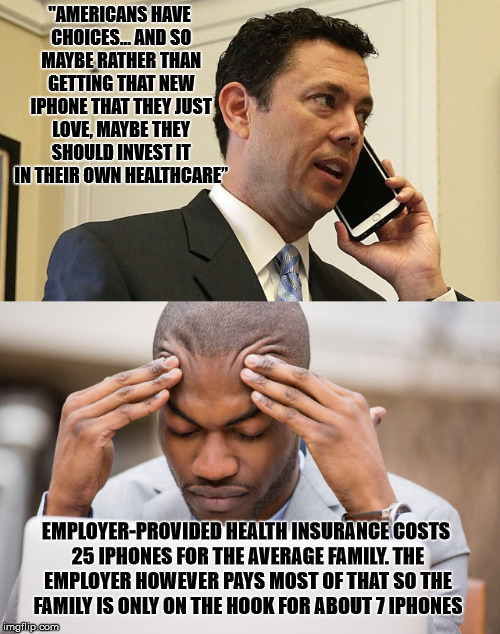You're leaving out a big part of the equation here. You're presenting "healthcare needs" as an absolute or some sort of constant when, in fact, they're specific to the individual. There are literally millions of people who go through their whole lives without ever needing a visit to a doctor. A person like that, or even one who has relatively modest healthcare needs, is absolutely having their healthcare needs met without taking anything, or much, from their budget - THAT is a fact. These people aren't few either - lots of people really don't need advanced medical care and, even when they do get injured, community support or simple home remedies are all they need. Again, *I* don't want to live like that, but there are plenty who are fine with it and universal healthcare steals that choice, and likely tens to even hundreds of thousands of dollars, from them over their lifetime. Your position seems to hinge on the idea of "I just don't want healthcare" to be some sort of non-option, but that's an outright fallacy. Lots of people who believe that will regret believing it when they suddenly need healthcare, but it still is a perfectly reasonable choice that many make - and universal healthcare takes that choice from them and forces them to pay for a service they may never need or want.
Anything that can be done in a universal healthcare society can be done without universal healthcare - the individual just has to pay for it *If* they need it. Conversely, in a universal healthcare society, the individual is never given that option - they (to my knowledge) can't opt out and that choice is literally taken from them and they are out a very significant amount of money through their lives. Again, this is a real choice that your position ignores outright.
I'm on the side of universal healthcare - this is not something I'm arguing against. That being said, I'm actually one of those people who has never needed anything from healthcare beyond a few vaccinations and, so far, I've personally lost a lot of money in paying for healthcare in my life. On the other hand, I have a friend who has a kid who needed *tremendous* help through his first two years of life and now, whenever I babysit the little dude, I get to see where my tax dollars went as the little bugger is running around - because there is no way in hell he could have afforded months of children's hospital bills to keep the little tyke alive. I've lost money, but I see where my money went, and I know that other people will essentially be bailing me out should I ever need a lot of help - which might never happen. My choice to pay into, or not pay into, healthcare has been stolen from me, and I can never gamble my life on chance that I probably won't need healthcare. I am *totally* OK with that choice being taken from me - but don't try and tell me that a choice hasn't been taken from me and many others because that is false.






